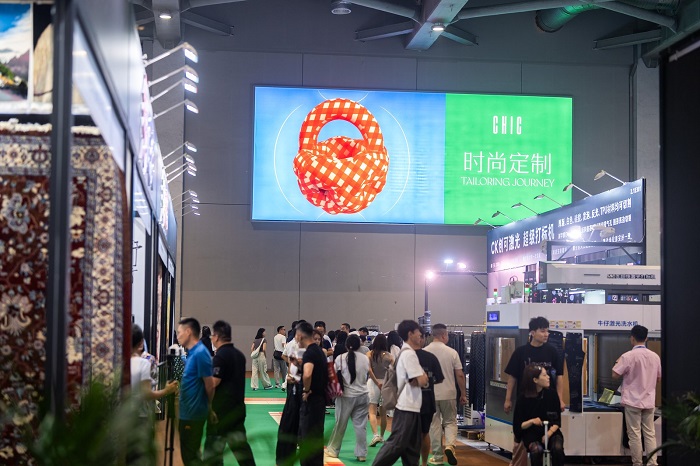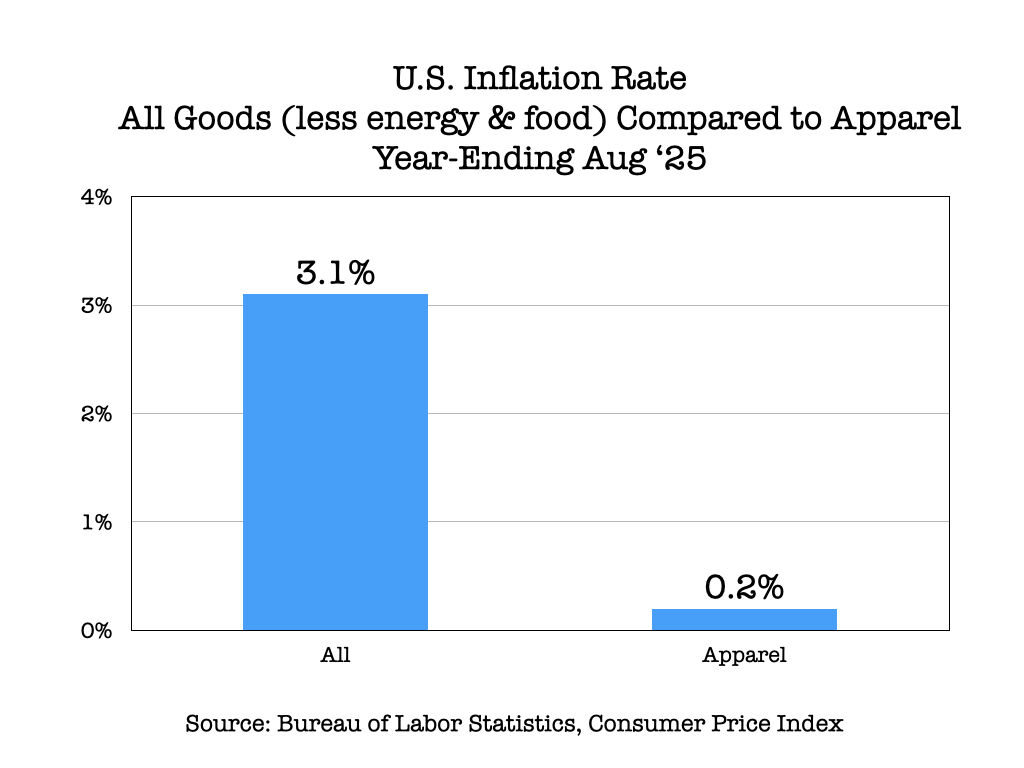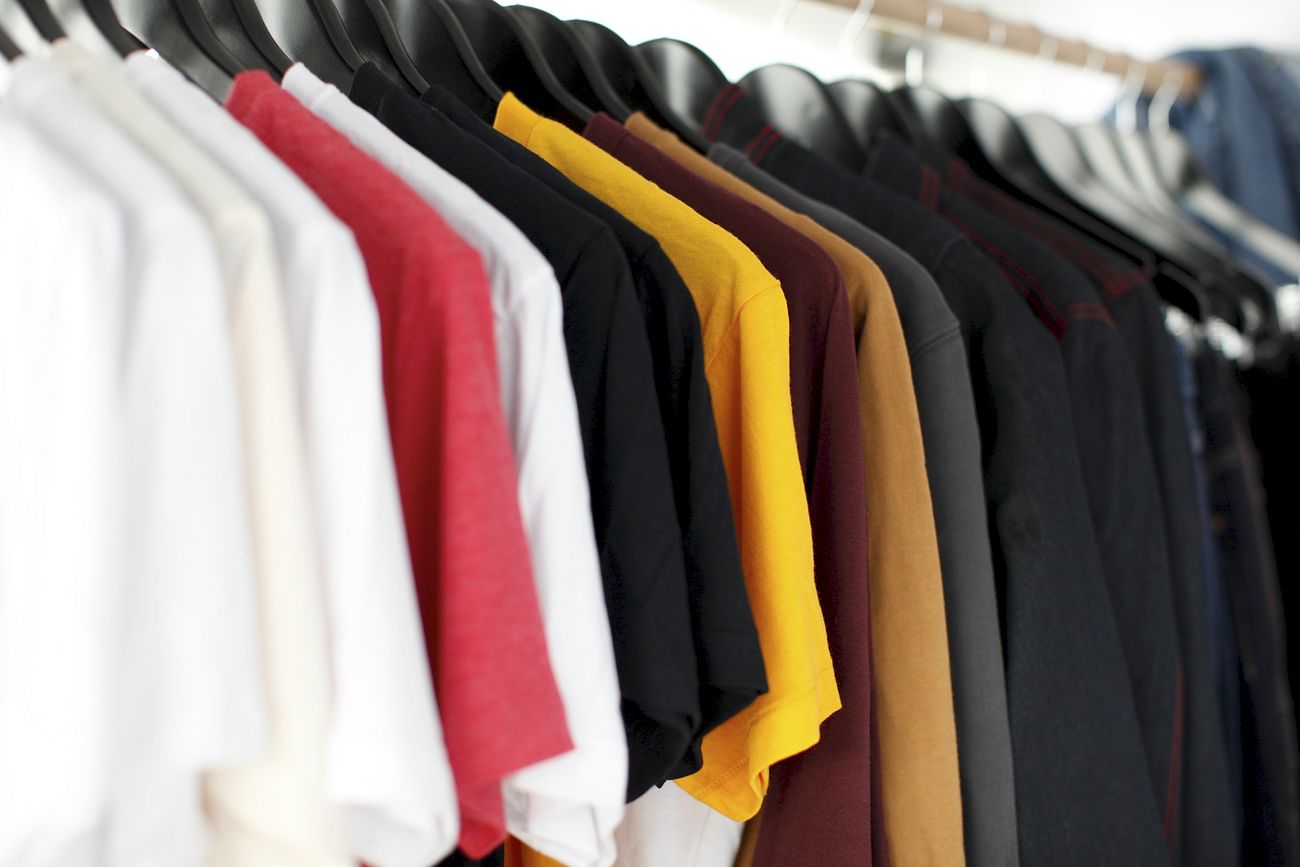FW
Turkey-based Vahdet Tekstil Makina is a leading supplier of high quality spare parts and technical support services for knitting machinery manufacturers. The textile machinery specialist was founded in 1986 and has undergone a makeover in 2004.
The company has developed a process which allows converting conventional tubular circular knitting machines into open width knitting machines. The company converts various kinds of circular knitting machines, including fleece, rib, interlock and plush knitting machines. The machine almost becomes new again, due to the newly installed takedown system, machine doors and legs.
The company has converted more than 500 knitting machines so far. The company’s product portfolio includes spare parts for Mayer & Cie. Terrot, Orizio and Pilotelli knitting machines, as well as a wide range of creel stands for circular knitting machines, high quality cams and yarn carriers, and socks creel stands and accessories.
With its sales offices, and showrooms located in Istanbul, the company aims to serve the increasing needs and requirements of knitting machinery producers worldwide, and continue developing technological potential in Turkey. It has recently invested in additional technology, like CNC vertical milling machines and CNC wire EDM machines, for the production of better quality spare parts for circular knitting machines.
Around 30 lakh bales of cotton have been exported from India so far as against a target of some 50 to 60 lakh bales this season. Some orders have been cancelled and some shipments postponed. This season, farmers have been delaying cotton sales in the hope of a further price hike. The move to scrap high-value currency notes disrupted trading in a cash-oriented market.
Pakistan, Bangladesh, China and Vietnam are key buyers of Indian cotton. This season China has not been an aggressive buyer and purchased most of its cotton from the US. Most shipments from India have gone to Bangladesh, followed by Pakistan and Vietnam. Pakistan has purchased some 20 lakh bales, Bangladesh has purchased around 10 to 12 lakh bales, China some 15 to 20 lakh bales. About five to six lakh bales have reached other markets.
Most contracts were signed when prices were around Rs 38,000 a candy, as a result of which the country is likely to lose out on forex, since current international prices are in the range of Rs 42,000 a candy. Raw cotton supplies usually peak in India between December and February, pushing down prices.
The country is expected to meet export targets this season.
While cotton cultivation is crucial to many developing economies, it can also have a hefty impact on the environment. About 10 per cent of agricultural chemicals used worldwide are processed by the cotton sector. While organic methods are slowly growing, organic cotton only makes up around one per cent of the global cotton supply chain.
Some brands are switching their supply chains over to more sustainable sources now, while buoying efforts to increase access to sustainable raw materials. Adidas aims to source 100 per cent of the cotton it uses — across all product categories and in all its brands — as sustainable cotton by 2018.
H&M is one of the world’s leading buyers of organic cotton. It is also an user of recycled cotton. The fast fashion giant’s ultimate aim is to source 100 per cent of its cotton from sustainable sources by 2020. Pantagonia began the exclusive use of organically-grown cotton in all of its products in 1996.
Levi Strauss is working with the Better Cotton Initiative to train farmers to grow cotton using less water. It plans to continue working with its global suppliers with the goal of sourcing about 75 per cent Better Cotton by 2020 up from six per cent today.
Lectra has developed a new, finely-tuned supply chain program for brands, retailers and suppliers. It will enable them to control the chain of digital information, reducing time and costs to develop collections. The program guarantees data integrity across digital exchanges to cut development time, boost productivity, improve product quality and fit, reduce time to market, and heighten consumer satisfaction. It ensures a robust and connected supply chain, essential for fashion players to operate efficiently in today’s high-speed fashion market, with new consumer demands and their need to feed online and in-store channels rapidly and regularly.
Contractors and their suppliers do not always use the same versions of software applications, or may use entirely different solutions. As a result, valuable information created up front is frequently compromised—and even only partially transferred—often generating costly errors and confusion in product development and production, resulting in lost time, efficiency and productivity for both parties.
In addition to providing in-depth analyses of current co-development processes, the program offers a customized action plan to reduce the cost of product development, share fashion industry best practices, eliminate non value-added activities and ultimately improve product quality and lead times.
Lectra is the world leader in integrated technology solutions dedicated to industries using fabrics, leather, technical textiles and composite materials.
Dhaka will host the Bangladesh denim expo on March 1 and 2, 2017. The show offers international fashion buyers a one-stop sourcing platform for all aspects of jeans wear. Exclusive to authorized trade visitors, the expo acts as a hub for players on the international denim scene to mingle with colleagues, make new contacts and broker deals.
It will enable buyers and manufacturers to interact and establish future relationships. The show will bring together a selection of highly respected denim mills. The theme is ‘Denim Mashup’. This is a youth-centric denim theme, especially for young women, which brings the fun-feel of the ’90s complete with allover embellishment, shredding and chain details, embroideries, exaggerated proportions, quilted surfaces, fabric mixes etc.
Brands like Gucci to fast fashion retailers like Zara and H&M, all are taking up this as the next cool denim trend in 2017. The show will recreate this theme using products from some of the key global denim suppliers and bringing them together under this theme. In addition there will be seminars, live presentations, panel discussions and workshops on global denim innovations and trends.
Bangladesh is the fastest growing denim destination globally for sourcing fabrics and has been growing exponentially and quickly rising up the value chain.
"Terry towels coming from the Indian factories accounted for almost 21 per cent of the world market. With another 19 per cent share in the bed linen market, India stands as a quality supplier to the US. Indian products are more focused towards innovation and quality. Visible efforts in quality improvement, innovations through R&D programs, and other value-added features bring a whole new dimension to the Indian products. In turn this resulted in higher profit as compared to other regional producers."

Terry towels coming from the Indian factories accounted for almost 21 per cent of the world market. With another 19 per cent share in the bed linen market, India stands as a quality supplier to the US. Indian products are more focused towards innovation and quality. Visible efforts in quality improvement, innovations through R&D programs, and other value-added features bring a whole new dimension to the Indian products. In turn this resulted in higher profit as compared to other regional producers.
Customised and high-value added products are generally not affected by change in market parameters. As such, there were no exceptional price fluctuations on Indian markets during quota removal period. But such was not the case with other regional competitors’ products, such as China, where prices were cut down significantly favoring buyers.
How does the treaty effect fare?
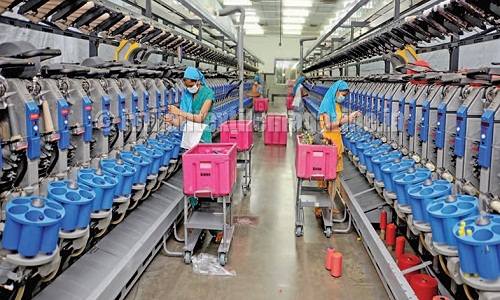
With the removal of quotas and similar trade barriers, the market is expected to provide new opportunities with evaluations reaching $1.4bn for towels and $1.8 in bed linen. China’s impressive production capacity and its growing strength compelled Europe and US markets to some serious reflections. To bring a halt to massive invasion of their products, EU and US have imposed trade restrictions, which also encourage retailers to review their sourcing strategy through diversification out of China. Now, undoubtedly India has good cards to play. With traders realising the threat of relying on a single manufacturing source such as China, India could do well in proposing a valuable alternative to buyers on the international scene, but this is only possible through an adequate and appropriate development strategy and macro-economic policy.
In that view, many manufacturing companies in India are rushing towards expansion and modernization options. Manufacturers are having recourse to fund raising programs pushing EPS to higher growth, dissolving equity on its way. Business collaborations with foreign players, creation of buying offices and Government’s effort to enhance quality production and export are many visible signs of Indians coming into force on the global market.
Capacity expansion the way ahead
The new opportunities have carried along Indian home-textiles manufacturers in the expansion strategy direction. The Textile Upgradation Fund has helped many such operators to increase capacity during the last three fiscal years. Such expansion strategies have not only had an impact on production volume, also assisted companies in better providing customized products.
The home textile sector is in a good position to activate and encourage developments in the overall domestic textile industry. With more emphasis on product having longer cycles than those average apparels, home textiles manufacturing is more protected than its apparel counterparts. Those wishing to reap the benefits of opportunities have to show good preparatory dispositions as well as willingness to stay on the forefront of the global competition game – without these; we could see regional competition grabbing most of the market share.
Pure London, the UK’s leading fashion trade event, announced the launch of a new sourcing event, Pure Origin. Targeted at uniting international suppliers, buyers and brands in London’s busiest fashion trade hub, Pure Origin will bring together all aspects of fashion sourcing and manufacturing under one umbrella.
Held in the heart of London alongside Pure London and Pure Man, Pure Origin is the gateway for global manufacturers to break into the UK market, meet thousands of visitors from the fashion retail ecosystem and share a part of a market whose growth rate is racing across Europe.
Pure Origin will offer a unique opportunity for connected and efficient business by facilitating easy access to International suppliers and fuel networking and trade.
More than 40 manufacturers worldwide, including Blueberry Impex and Timeswell Textile from Hong Kong and Ribeiro & Matos from Portugal have already confirmed participation. While an surge in British manufacturing is reflected in a strong UK contingency at the show with Oxford Blue, LS Manufacturing Ltd., Gil Design Studio, Kalopsia Collective and BeFab Be Creative UK signed up. Julie Driscoll, Managing Director at Pure London exults, “Offering efficiency and time-saving benefits, Pure Origin will showcase a curated selection of international manufacturers, textile producers and white labels – it was the obvious extension to the globally recognised Pure London brand. The UK is renowned for its world-class retailing, booming e-commerce sector, innovative independents and resilience and following extensive research into the marketplace Pure Origin was created to deliver all aspects of fashion sourcing and manufacturing under one spectacular roof at the London Olympia.”
Pure London now welcomes more than 800 brands from 48 countries and over 10,000 UK and International visitors. International growth has been driven through penetrating 13 new geographical markets including Peru and Malaysia.
To find out more information on the AW 18/19 event, visit www.purelondon.com. The next edition will take place from 11th-13th February at London Olympia, welcoming over 800 brands across womens’ wear, menswear, young fashion, athleisure, footwear and accessories.
Australia has the capacity to produce carbon fibers at a scaled-up level. The wet spinning line will enable the country to carry out carbon fiber research starting from molecules to fully finished components. The carbon fiber research capability could disrupt the carbon fiber industry. The carbon fiber facility will help Australia develop the next generation high performance carbon fibers.
The wet spinning capability develops strands of thin fibers, which are thinner than human hair, which are then carbonized. An Italian company built the wet spinning line. The raw material used to make carbon fiber is called the precursor. About 90 per cent of the carbon fibers produced are made from polyacrylonitrile. The remaining 10 per cent is made from rayon or petroleum pitch.
The process for making carbon fibers is part chemical and part mechanical. The precursor is drawn into long strands or fibers and then heated to a very high temperature without allowing it to come in contact with oxygen. Without oxygen, the fiber cannot burn. Instead, the high temperature causes the atoms in the fiber to vibrate violently until most of the non-carbon atoms are expelled. This process is called carbonization and leaves a fiber composed of long, tightly inter-locked chains of carbon atoms with only a few non-carbon atoms remaining.
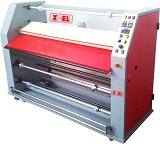
XCEL is a professionally managed company headed by highly qualified and experienced people which has been involved in the industry since 1994 to offer excellent solutions for setting up hospitals, hotels, garment factories and commercial laundries.
The company has an in house processing facility and continuous R&D. It ensures an uniform quality and delivery commitments for a broad range of premium and economy machines produced at a progressive assembly line in technological association with major global companies.
For ironing there are all types of ironing and blowing tables for garments, up-steam tables for knits and woolens, inline pressing tables for sampling and inline pressing with built in boiler. For laundry is a complete range of front load washing machines, top or side load washing machines, drying tumblers and hydro extractors. Washing machines and drying tumblers are available in all versions of heating.
The company has had a tie-up with industry leader IIGM, with which it can sell these machines on a pan India basis. The company hopes this will add to its market share.
Post process printing machine suppliers are not organised as they lack the range. So XCEL has decided to launch the complete range of nine machines within the next six months though three machines will be launched in the coming GTE, March 2017, New Delhi. Also to be launched will be a range of digital printing post process equipments.
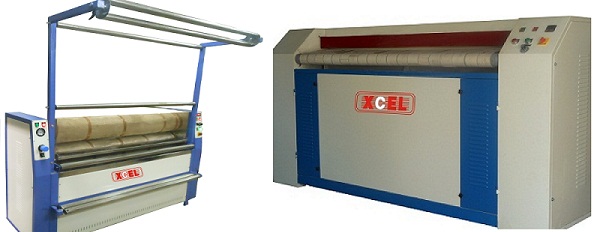
Unrest has hit Bangladesh’s readymade garment industry. At least 26 trade unionists and garment workers in Bangladesh have been jailed for participating in a strike since December last year following demands to increase the minimum wage.
In addition, more than 1,600 workers have been fired and police have filed cases against 600 workers and trade union leaders, including charges of terrorism. There is growing international concern around Bangladesh’s clampdown on trade unions in the country’s garment sector. Bangladesh’s garment workers remain the lowest paid in the world and have not received a pay rise in over three years, despite soaring inflation in the cost of basic goods.
The Bangladesh garment and textiles industry is progressing towards its goal of increased value of exports but this can only be based on profitable businesses that support decent employment for workers whose rights are respected.
Opening a dialogue on strategies to secure a more sustainable apparel supply chain from local and global perspectives may help. Employers say minimum wages in the apparel industry in the country have risen 219 per cent over the last six years and that they have created a Workers’ Welfare Fund, which will invest 10 million dollars this year on workers’ insurance, education, healthcare and other welfare activities.






